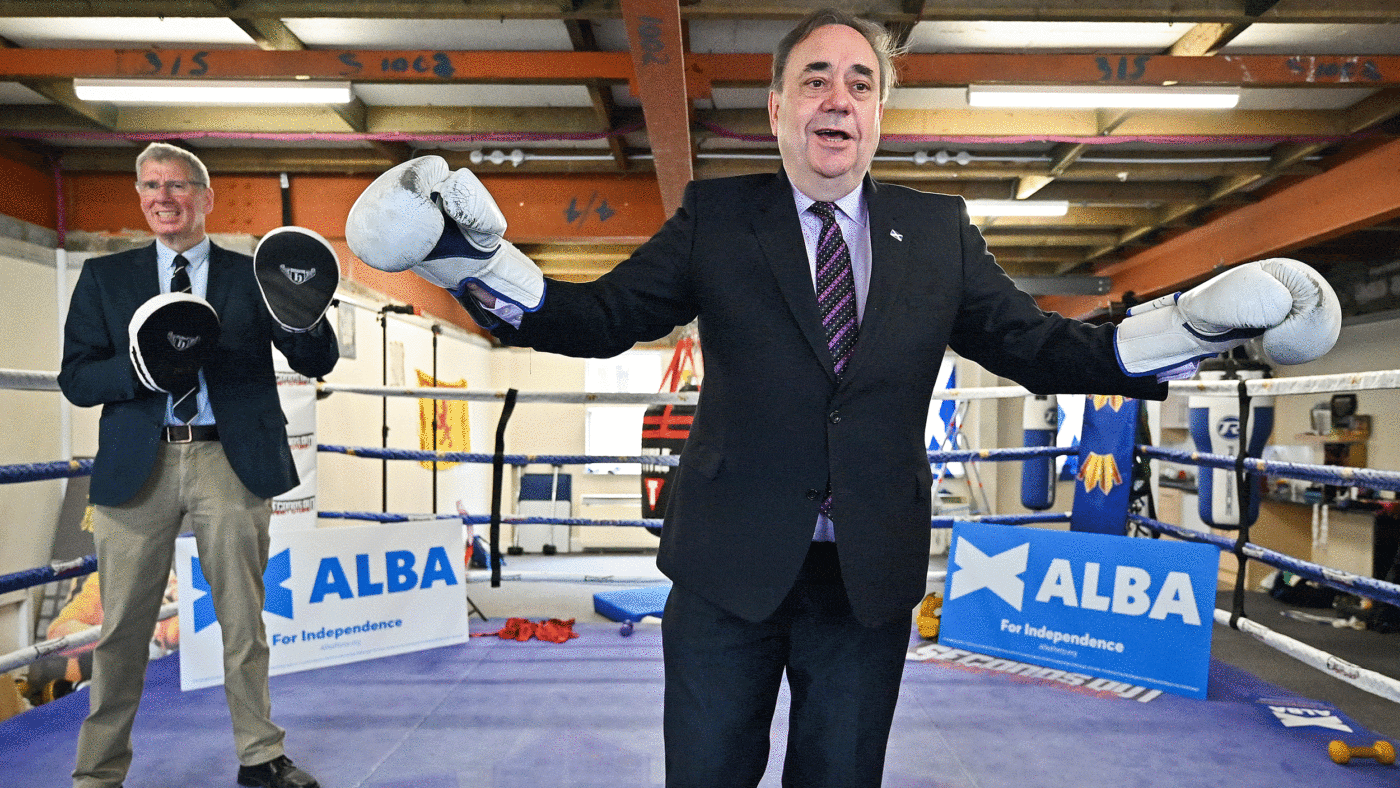It’s never an easy thing for a party leader when an MP (or in this case, MSP) defects to another party. On the one hand, there is the understandable urge to go on the attack, to denigrate the defector so as to downplay the perceived damage to your own party.
Yet that opens up the awkward question of why, if you held this person in such low esteem, you ever put them in front of the voters in the first place. Or said whatever nice things you inevitably said about them when they were still wearing your rosette.
Humza Yousaf’s ‘good riddance’ response to the departure of Ash Regan is thus, in itself, understandable if awkward. She was widely viewed as Alex Salmond’s candidate when she stood against him for the SNP leadership. Her crossing the floor to his Alba Party is not very surprising.
Indeed, the First Minister might be a little glad that a rival party, which signally failed to win a single MSP at the last Holyrood elections, is serving as a drain for parts of the Nationalist awkward squad (it has also attracted two MPs).
Yet whatever personal satisfaction Yousaf might take from the defection on one level, it is nonetheless a potentially dangerous development, because the SNP owes its still-dominant position in Scottish politics to the fact that it is the hegemonic party of separatism.
Ever since 2015, when the Nationalists successfully rolled the bulk of the defeated ‘Yes movement’ from the referendum behind their candidates, they have benefited from the fact that the roughly 45% of the Scottish electorate who favour independence have backed them, whereas the larger pro-Union electorate has been divided between the three major parties.
At Westminster, this has allowed them to roll up the great majority of Scottish seats (at one point, all but three). At Holyrood, pro-independence voters have gamed the two-ballot voting system to consistently deliver solid separatist majorities, with Nationalist voters giving their regional vote to the Greens rather than squandering it on the SNP, which due to winning most constituency seats would qualify for few top-ups.
Under the successive leaderships of Salmond and Nicola Sturgeon, his one-time protégé, the Nationalists combined this propitious position with fierce internal discipline, masking the many issues over which its broad coalition might split with the imperative of delivering independence.
That strategy has been running out of road for some time. Even a politician as skilled as Sturgeon was finding it increasingly difficult to pull off the annual one-more-heave act needed to keep it together, as the splits over her gender recognition legislation showed. And Yousaf is no Nicola Sturgeon.
So far, Alba has only really succeeded in picking up waifs and strays. Whilst there remain rumours that a second MSP might defect, the First Minister’s most dangerous opponents – Kate Forbes and the right-leaning MSPs around her – are still in the tent.
But Salmond’s outfit doesn’t need to come close to challenging the SNP in overall numbers to make the party’s act an impossible one. To date, it has been able to bank the hardcore separatist vote, even if its efforts to woo middle ground voters have been fitful and unsuccessful. If it has to start actively wooing them, any such efforts to broaden that 45% into a winning majority would be all but impossible.
However, instead of trying to downplay the danger, Yousaf seems to be leaning into it, throwing down the gauntlet to members unhappy with his strategy or leadership – or, in his words, those not ‘committed to independence’.
The problem is those people amount to far more than just the Zoomers. The more dangerous split is with the growing number of Nationalists who are sick of the Scottish Government’s dependence on the Scottish Greens. Were Forbes et al eventually to despair and set up their outfit, would Yousaf welcome that second outflow too? Would his party survive it?
Yet he can’t easily appease them either, because post-Sturgeon, the SNP’s new base is with left-leaning voters in the West of Scotland, not the right-leaning former Tartan Tories in the party’s original rural heartlands.
The First Minister has many problems, chief among them his limited talents as a politician and his party’s woeful record at actually governing Scotland since it first took office in 2007. But so long as the SNP were the only home for separatist voters, none of that mattered, electorally at least. Regan’s defection is the latest sign that, at long last, it finally might.
Click here to subscribe to our daily briefing – the best pieces from CapX and across the web.
CapX depends on the generosity of its readers. If you value what we do, please consider making a donation.


